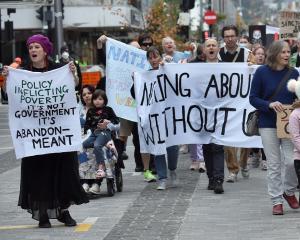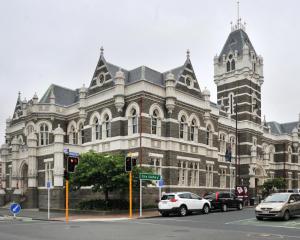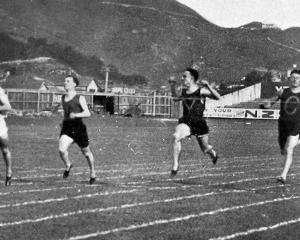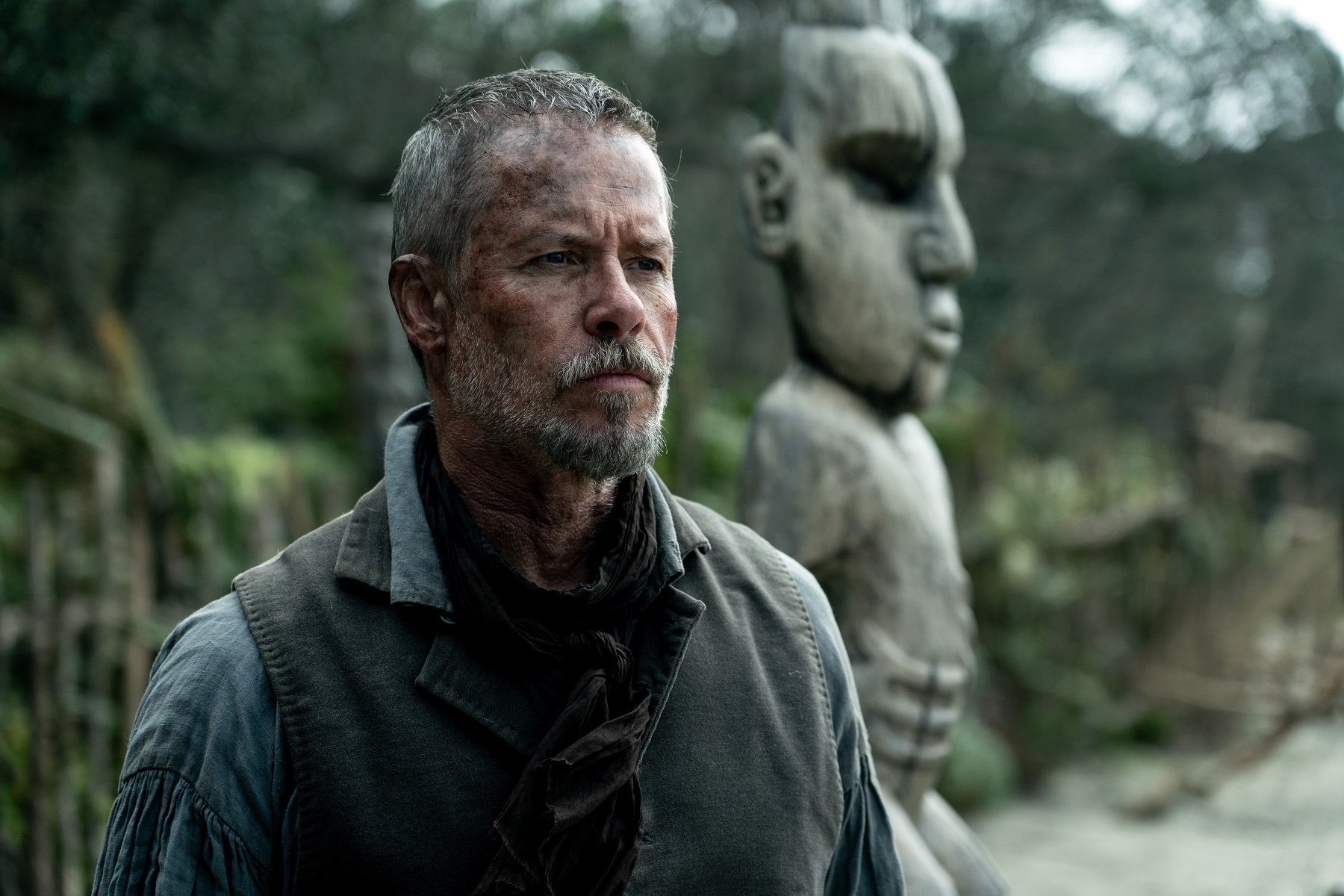
A young Pākehā woman in a long-sleeved floral dress stands in the doorway of a rough-hewn wooden cottage and gives a small gasp.
In the dim light, she approaches the lifeless body of her Māori lover, crying quietly as she kneels beside him.
Her hand hovers above his motionless chest, which is covered with kawakawa leaves in preparation for burial.
She wants to touch him, but hesitates.
A brown hand reaches out, takes her white one and lays it gently on his chest.
Her tears turn to mournful sobs.
"I just think that is such a touching scene," Bradford Haami says.
"It asks, ‘How do we, as different peoples, come together in a way that, actually, we live together, we mourn together, we work together?’ How do we find that place?"
The Convert is an action-filled historical drama depicting pre-colonial Aotearoa of the 1830s; a time and place rarely shown in big budget movies, Haami, who has been involved with the film for its decade-long gestation, says.
The film tells the fictional tale of lay preacher Thomas Munro, played by Guy Pearce, who comes to New Zealand seeking redemption from a dark past.
Munro is caught up in musket-fuelled warfare between Māori tribes, bringing him into contact with two rival chiefs, Akatārewa (Lawrence Makoare) and Maianui (Antonio Te Maioha) as well as Maianui’s daughter, Rangimai (Tioreore Ngatai-Melbourne).
The tension builds as all parties are forced to choose what part they will play in this fast-changing world.
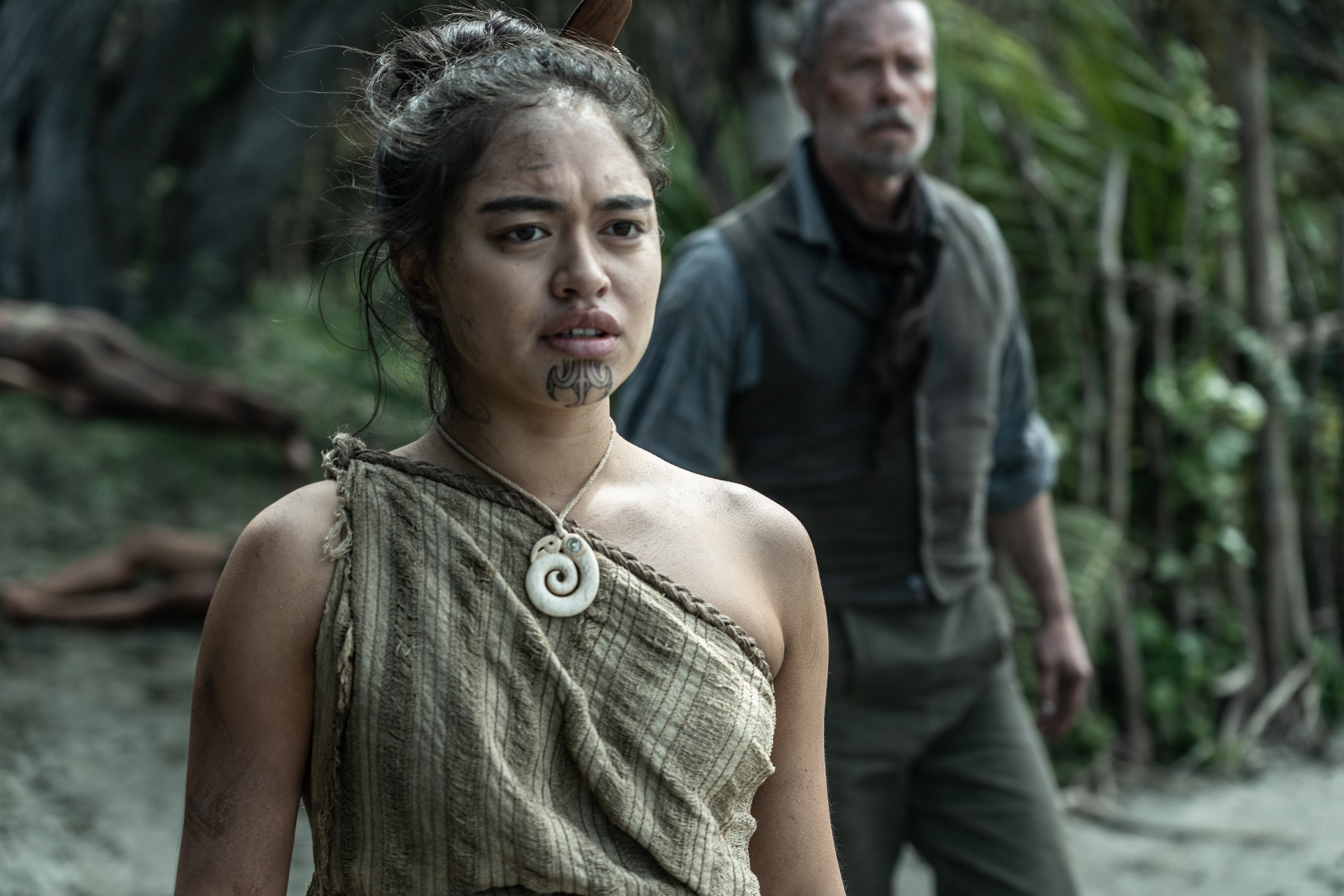
Haami is an associate producer and the film’s pou tiaki tikanga, cultural adviser.
"It meant bringing a lot of historical knowledge ... to the table to try bring a more authentic storytelling," Haami says via video conference call from his hometown, Whakatāne.
"We were constantly around the story table mapping out the plot and emailing each other to review the characters ... ‘Why would they do this? Would they really react this way? Is that the Māori way of reacting in that period or not?’.
Haami is a member of Ngāti Awa, with affiliations to Ngāti Kahungunu, Tūwharetoa and Kāi Tahu.
"I have connections to Bluff and Moeraki," he says of the last.
He began his film and television career as a journalist on Television New Zealand programmes including Waka Huia, Marae and Mai Time. He has written and consulted for programmes such as Mercy Peak and Mataku and feature films The Man Who Lost His Head, Kingitanga, Tracker and Mahana.
Haami has also been a mātauranga Māori (Māori knowledge) consultant and curator for exhibitions at Auckland Museum and Te Papa Tongarewa Museum.
As an author, he has published a dozen books and several essays on mātauranga Māori, Māori biography and indigenous theology.
His connection with The Convert goes back to 2014, when he was asked by Scholes to help develop the nascent film’s script.
"Over the years, there were a number of writing teams."
But in recent times, Haami has worked most closely with Tamahori and script writer Shane Danielson.
"When Lee came on board ... it added a whole new dimension to the story narrative."
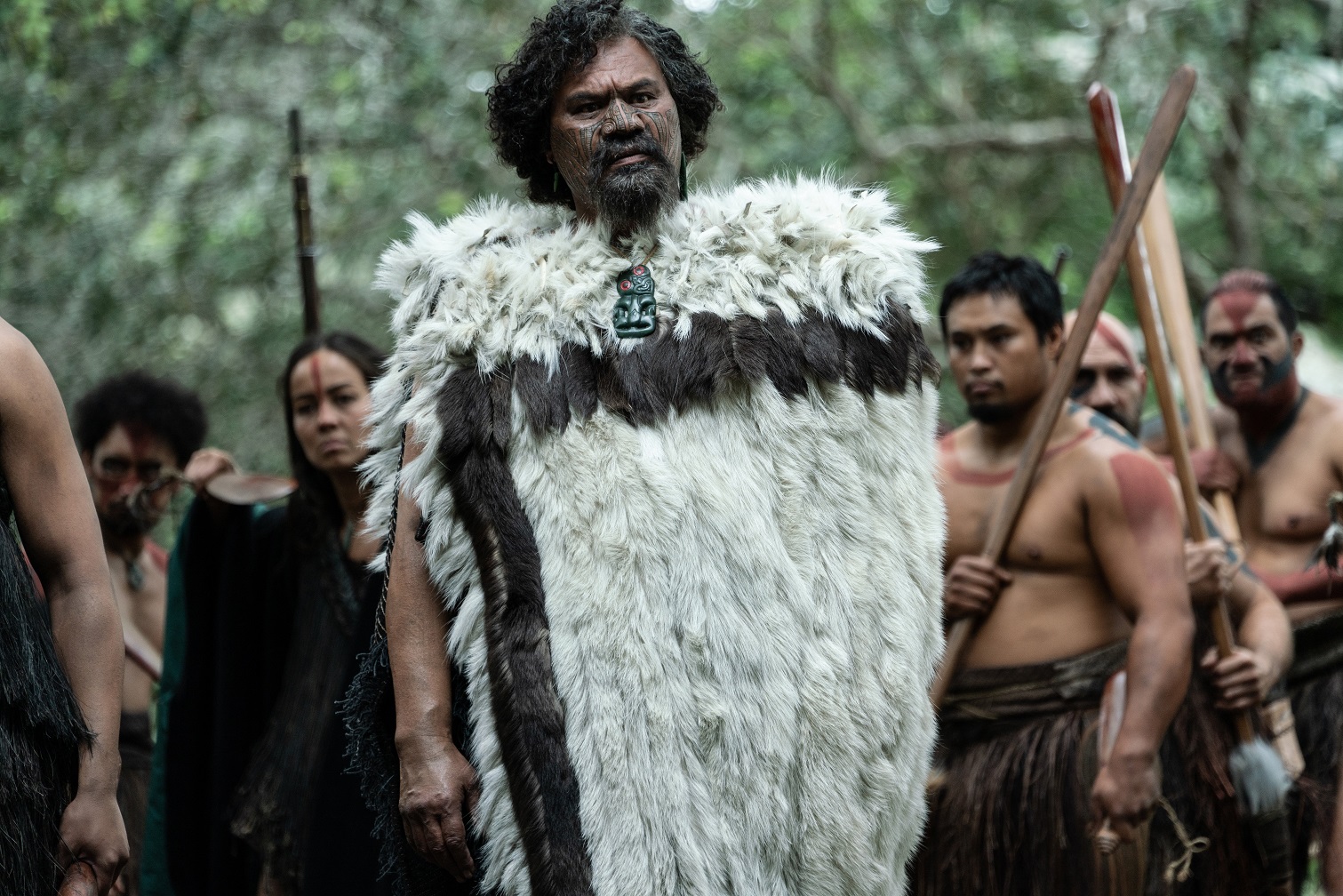
He then travels on to a small British settlement, Epworth, where he is to serve as church minister. But it is quickly made clear his job is merely to add a thin veneer of civilisation.
When one of Maianui’s men is killed in mysterious circumstances, Munro and Rangimai journey into bush-clad lands ruled by Māori rangatira, in hope of repairing the injustice.
Munro, however, soon realises he is a pawn in a bigger game that is leading inexorably to bloody war between the two most powerful tribes.
For Haami, the goal of his pou tiaki tikanga role was crystal clear.
"It was all in the cause of creating authentic characters and authentic, but fictional, story lines of the period."
What role the Munro character — a man of war and of peace — should play in the story was "something we battled over", striving to avoid colonial conceits.
In the end, Haami was satisfied with the result.
"I felt we found the right opportunity to portray it in a way that gave the agency of change and the agency of story to Māori, and wasn't overwhelmed by the trope of the Great White Hope. But at the same time it stayed, I think, authentic for the times."
Tamahori’s skill as a storyteller and his instinct for cinematic potential were enormous assets that also brought a challenge.
"The tension between cinematic storytelling and historical story, there's a bit of a tension there," Haami says.
"Together, we had to scan the histories of a vast period of time, from the 1790s to the 1860s, to ensure that we had the cultural aspect in that day correct."
Budget and weather also played their part.
"They all become a tension that we all worked with, together, to produce the best story."
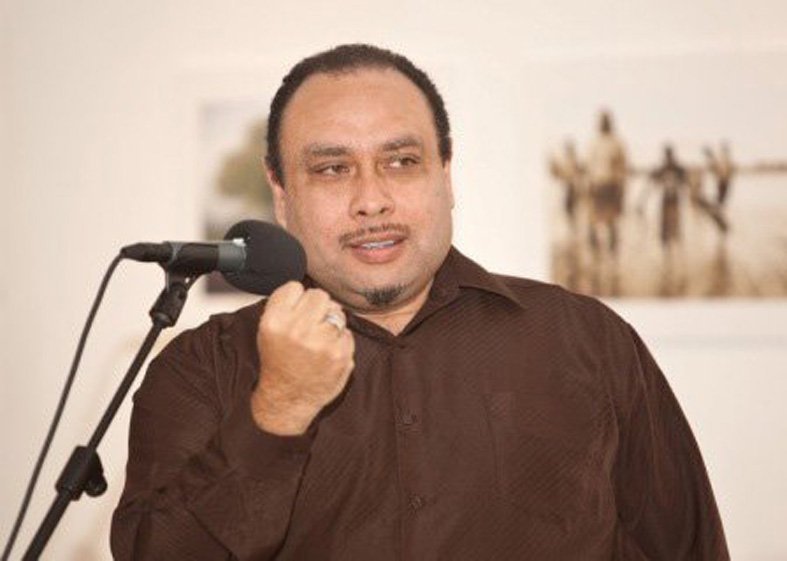
The hapu’s tohunga responds to Munro’s revelation with a piercing question and a revealing statement.
"Do you seek redemption as a man of peace? I pity you. Only blood redeems blood."
These concepts — conflict and peace, muskets and missionaries, utu and whakapono — are central themes in the film, Haami says.
"As much as the realm of blood was part of Māori culture, the Christian view of it was that Christ’s blood paid for the sin of all of the cosmos ... one is internal debt and one is tribal debt.
"And in the middle of that is this conversation about, ‘Well, how do you actually bring peace in those circumstances?’ And it actually changed the Māori world view of that period."
At the time, many Māori were tired of war, especially when muskets came on the scene, Haami says.
"They were searching for another way of being. And so the whakapono, the Christianity of the time, seemed to bring a different idea about how we can come together in a more long-lasting peace."
Munro’s character also gives voice to the message that inter-tribal warfare will only give the colonial world more power over Māori; that, instead, they need to find a unified voice.
Munro, Haami says, can be seen as an admixture of several leading missionaries of the early 1800s.
"We studied a lot of the missionaries and the rangatira of the time and the types of relationships that were created."
Like the Rev Samuel Marsden, who in 1814 brought the first horses to New Zealand, Munro rides a white horse ashore. (In a later colonial period, white horses would became an emblem of Māori prophets.)
Like missionary Henry Williams, Munro is a clergyman and a peacemaker with a military background.
"The character of Munro, being a lay minister, brings the views of the humanitarian peace-orientated Christianity of the time — that there is a different way of living; it can't all just be about utu.
"In some ways, the sentiments of the film do represent something of Henry Williams’ view of the world. But it also allows Māori to make their own decisions about what that future would look like."
And like missioner Thomas Kendall, who transcribed the Māori language and studied the Māori world view, Munro does not remain aloof from te ao Māori, the Māori world.
"So in some way
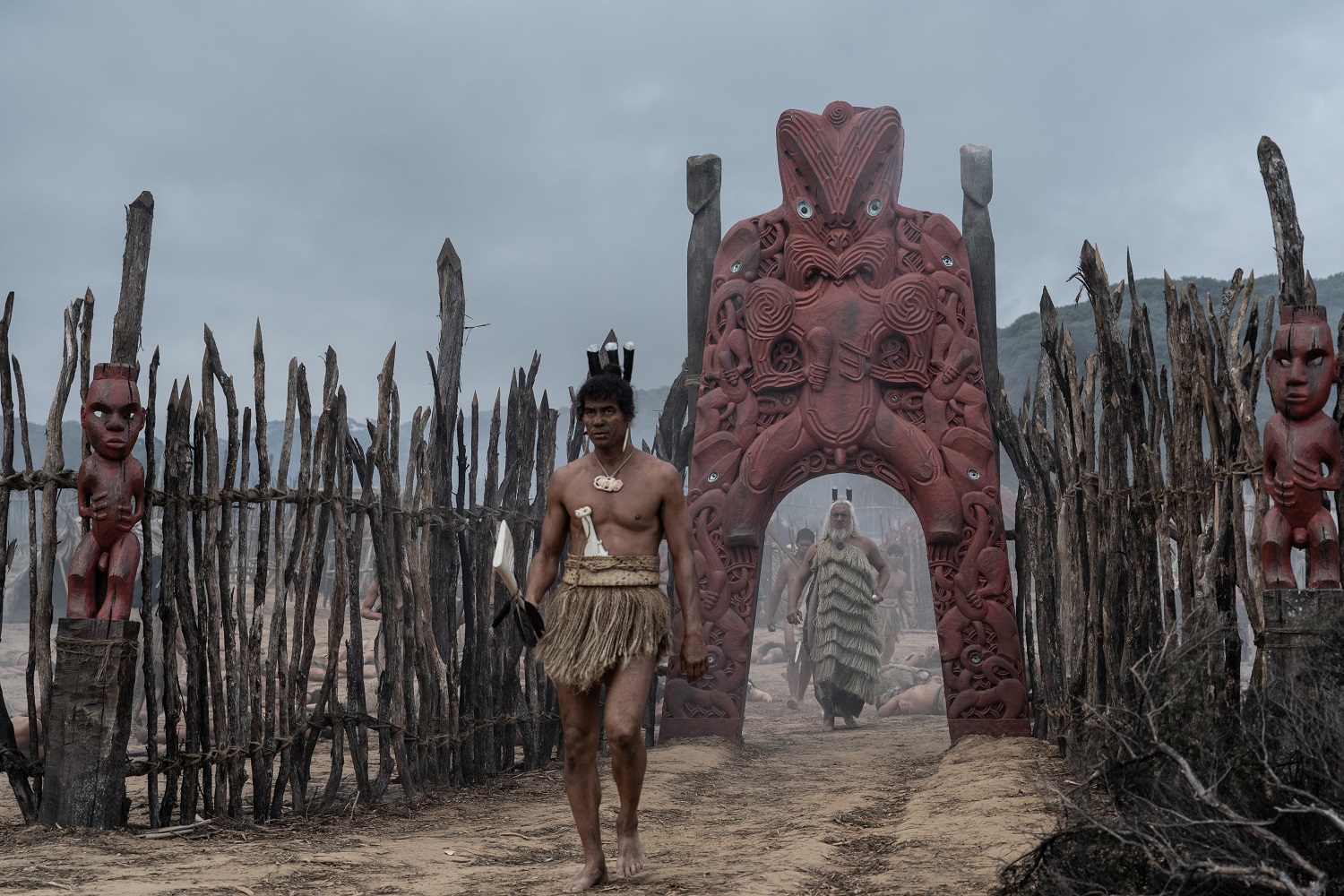
Attendees of last year’s Toronto International Film Festival, in Canada, where the The Convert premiered, named Ngatai-Melbourne the festival’s "rising star".
The film opens in New Zealand cinemas on Thursday, a decade after Haami was first asked to cast an eye over the story.
He is pleased with what has been achieved.
"I think everything we were trying to portray in the narrative is there.
"The way Lee cinematically directed it ... I think he did an awesome job."
And Haami is looking forward to the conversations he hopes The Convert will generate in Aotearoa.
"It's probably more important now, with the situation we’re in, because it is primarily a story based in a pre-Treaty world and a pre-Declaration of Independence world.
"I think the film’s core message is, ‘How do we find a unification that's able to withstand all of the globalist challenges and colonial institutions? How do we form ourselves?’
"With the recent events and with the Māori king calling Māoridom together, there is a new burgeoning of unity in the Māori space occurring. But how does that occur in the wider space of New Zealand ... without losing each other's diversity? Maybe that's part of what the film is trying to say."
The film
- The Convert opens in cinemas on Thursday, March 14.

